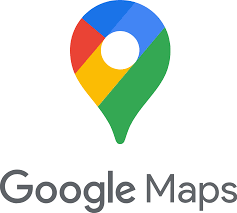
Google, the tech giant that has revolutionized the way we access information, connect with others, and navigate the digital world. Founded in 1998 by Larry Page and Sergey Brin, Google has grown from a humble search engine to a multi-faceted corporation that offers a wide range of products and services.
At its core, Google’s search engine is its most well-known feature. With a mission to organize the world’s information and make it universally accessible and useful, Google’s search algorithms have become synonymous with efficiency and accuracy. Whether you’re looking for answers to complex questions or simply browsing for inspiration, Google’s search engine is your gateway to a wealth of knowledge.
Besides search, Google offers a plethora of tools and services that cater to various needs. From Gmail for communication to Google Maps for navigation, from YouTube for entertainment to Google Drive for storage, Google has seamlessly integrated itself into our daily lives.
Google’s commitment to innovation is evident in its constant evolution and introduction of new technologies. Projects like self-driving cars through Waymo, artificial intelligence research through DeepMind, and virtual reality experiences through Daydream showcase Google’s ambition to push boundaries and shape the future.
With a corporate motto of “Don’t be evil,” Google emphasizes ethical practices and social responsibility in all its endeavors. The company’s dedication to sustainability, diversity, and community engagement sets it apart as a leader in corporate citizenship.
In conclusion, Google stands as a beacon of technological advancement and innovation in the digital age. Its impact on society is profound, shaping how we learn, communicate, work, and play. As we continue to embrace the wonders of technology, let us appreciate the role that Google plays in making our world more connected and accessible than ever before.
4
Google makes money primarily through its advertising business. The majority of Google’s revenue comes from its advertising platform, Google Ads, which allows businesses to display ads on Google’s search engine results pages and other websites within the Google Display Network. Advertisers pay Google when users click on these ads or when the ads are displayed to a large audience. Additionally, Google generates revenue through other services such as cloud computing, hardware sales (like Pixel smartphones and Nest smart home devices), and subscription services like YouTube Premium and Google Workspace. Overall, Google’s diverse revenue streams contribute to its financial success and position as a leading tech company in the digital landscape.
The history of Google traces back to 1998 when Larry Page and Sergey Brin, two Ph.D. students at Stanford University, founded the company in a garage in Menlo Park, California. Initially conceived as a search engine named “Backrub,” the duo rebranded it as “Google,” a play on the word “googol,” representing a vast number. Google’s breakthrough PageRank algorithm revolutionized search technology by ranking web pages based on their relevance and popularity. Over the years, Google expanded its services beyond search to include email (Gmail), maps (Google Maps), video sharing (YouTube), and cloud storage (Google Drive). Today, Google is a global tech powerhouse known for its innovation, commitment to user experience, and mission to organize the world’s information and make it universally accessible and useful.
Understanding how the Google search engine works is essential for navigating the vast online landscape. When a user enters a query into the search bar, Google’s sophisticated algorithms spring into action. These algorithms analyze billions of web pages in its index to find the most relevant results based on factors like keywords, website quality, and user experience. Through a process known as crawling and indexing, Google continuously updates its database to ensure that users receive up-to-date and accurate information. By constantly refining its search algorithms and incorporating user feedback, Google strives to deliver a seamless and efficient search experience that connects users with the information they seek.
Google offers a diverse range of popular products and services that have become integral parts of our daily lives. Some of the most widely used offerings include Google Search, Gmail for email communication, Google Maps for navigation, YouTube for video streaming and content creation, Google Chrome as a web browser, Google Drive for cloud storage and collaboration, and Android as a mobile operating system. These products and services showcase Google’s commitment to innovation, user experience, and accessibility across various digital platforms.
In response to the frequently asked question, “Is Google tracking my online activity?” it’s important to understand that Google does collect data on users’ online activities to personalize their experience and improve its services. This tracking enables Google to deliver targeted ads, enhance search results, and tailor recommendations based on user behavior. While some may have concerns about privacy, Google provides tools and settings for users to manage their data preferences and control the information shared with the platform. It’s essential for users to stay informed about privacy policies and take advantage of available options to ensure a secure and customized online experience.